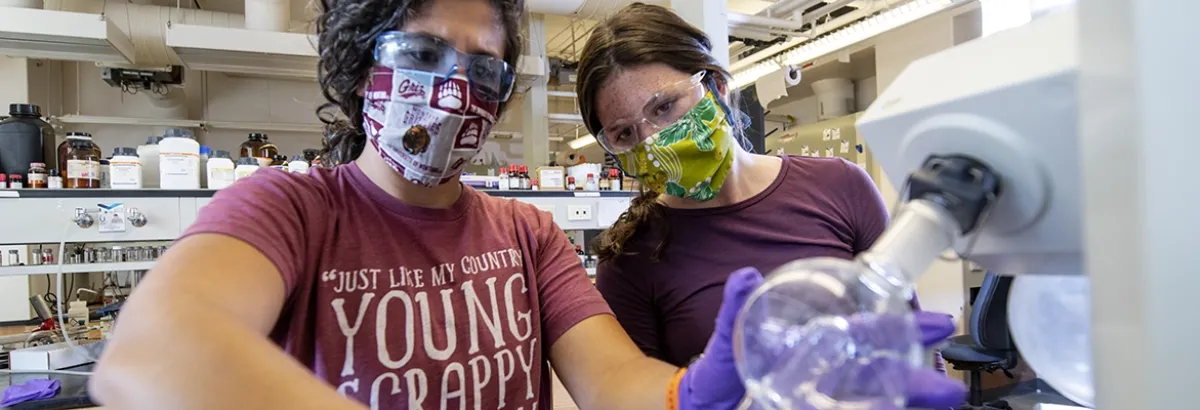Getting Started
Research and creative scholarship involve following and developing your interests; learning from others; honing your problem-solving skills; reaching audiences to communicate your project; and challenging yourself to think and communicate critically. In this section, you’ll find information about getting started in research and creative scholarship.
Frequently Asked Questions
-
Research and creative scholarship are scholarly activities that center on inquiry and original contributions to a discipline, area, or theme. Research takes places across STEM, humanities, arts, business, education, and other fields. In general, research can be broken into two categories:
- Undergraduate research typically culminates in a poster or oral presentation and a comprehensive written report, essay or thesis.
- Creative scholarship results in a new work from your artistic vision or reinterpretation of existing work. This could be a dance, artwork, essay, or other creative piece.
-
If you are interested in a topic, want to learn more about it, and are motivated by the potential to make an original contribution, then you should consider research and creative scholarship! Research isn't something you need to wait to do in graduate school, and it does’t need to be done in a lab. If you’ve ever asked “why?” and looked for information, you’ve experienced part of the research process. You may also have some experience with the process of research or creating new creative scholarship from your personal life or education.
Every field of study has its own theories, concepts, and methods, though there also are many spaces in which different fields shape each other. As a student scholar, you start with questions, problems, and possibilities of interest to you. Your focus could be aesthetic, social, political, scientific, or technical. You choose the approach(es), gather and analyze the information, and share your findings, argument, or creative expression with wider audiences.
-
Undergraduate research and creative scholarship provide experiential-learning spaces to put your coursework into practice. Throughout the process, you will learn to engage with and work through problems, question assumptions, communicate your ideas, and much more. These abilities are essential for your current studies and future plans. Some reasons to engage in this process include:
- Improve your critical thinking, problem-solving, and analytical skills
- Increase your resiliency and confidence
- Find and amplify your voice
- Develop a mentoring relationship
- Explore your career, academic, and personal interests
- Build a community with peers
- Improve your communication skills
- Apply your in-class learning to specific situations that require attention from different disciplines
-
There is no right or wrong time to get involved; the timing depends on your interests and field of study. You might be ready to start doing research as a first-year student, or you may need to build skills through coursework and start engaging later in your studies at UM. There are many options for experiencing research and creative scholarship on campus if you are interested.
